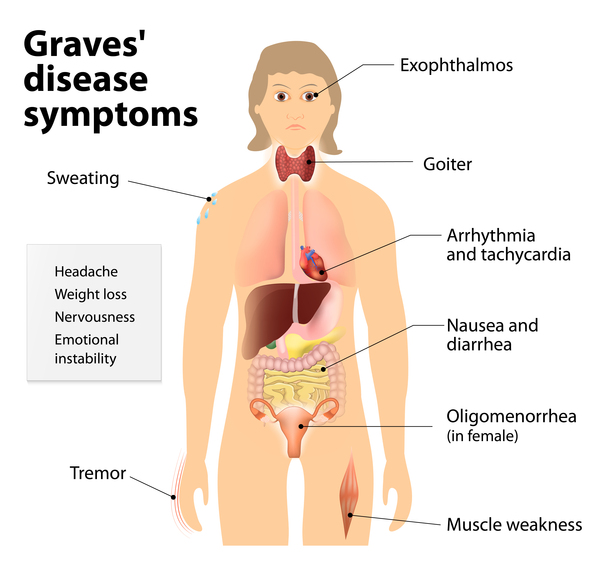The nurse is interviewing a client with possible Graves' disease. Which response would the nurse expect when asking the client about her comfort in cold weather?
"I always need to have a sweater or jacket on."
"I am always warm and sometimes even hot during cold weather."
"I seem to have episodes of hot and cold without regard to what I am wearing."
"My fingers are sometimes cold during the cooler weather."
The Correct Answer is B
Choice A reason: Needing a sweater or jacket is not typical for Graves' disease, which often causes intolerance to heat rather than cold.
Choice B reason: This response is typical for Graves' disease, as hyperthyroidism can increase metabolism, leading to feeling warm or hot even in cold weather.
Choice C reason: While temperature dysregulation can occur, the specific symptom of feeling warm in cold weather is more directly associated with Graves' disease.
Choice D reason: Cold fingers can be a symptom of many conditions, but it is not specifically indicative of Graves' disease.

Nursing Test Bank
Naxlex Comprehensive Predictor Exams
Related Questions
Correct Answer is A
Explanation
Choice A reason: The ABG results show an elevated pH and HCO3, which are indicative of metabolic alkalosis. The PaCO2 is within the normal range, suggesting that it is uncompensated.
Choice B reason: Respiratory acidosis would be indicated by an elevated PaCO2 and a decreased pH, which is not the case here.
Choice C reason: Metabolic acidosis would be indicated by a decreased pH and HCO3, which is not consistent with the given results.
Choice D reason: Respiratory alkalosis would be indicated by a decreased PaCO2 and an increased pH, which is not consistent with the given results.
Correct Answer is D
Explanation
Choice A reason: The statement about the medication taking a few weeks to work fully is accurate and does not require follow-up.
Choice B reason: The statement that levothyroxine replaces the hormone the body used to produce is correct and reflects an understanding of the therapy.
Choice C reason: Acknowledging the possibility of lifelong medication is appropriate for levothyroxine therapy in the case of hypothyroidism.
Choice D reason: Levothyroxine should be taken on an empty stomach, typically 30 minutes to an hour before breakfast, to ensure proper absorption. This statement indicates a misunderstanding that requires nurse follow-up.
Whether you are a student looking to ace your exams or a practicing nurse seeking to enhance your expertise , our nursing education contents will empower you with the confidence and competence to make a difference in the lives of patients and become a respected leader in the healthcare field.
Visit Naxlex, invest in your future and unlock endless possibilities with our unparalleled nursing education contents today
Report Wrong Answer on the Current Question
Do you disagree with the answer? If yes, what is your expected answer? Explain.
Kindly be descriptive with the issue you are facing.
